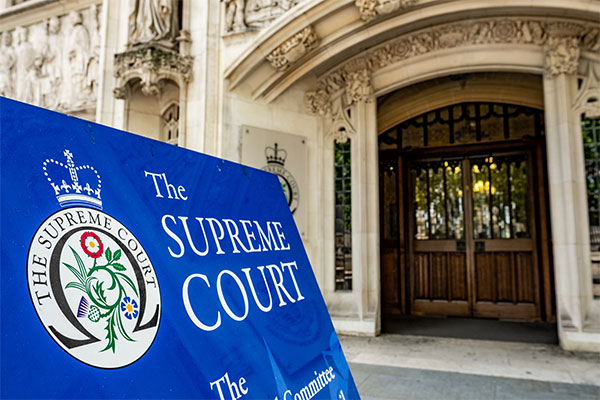The Supreme Court has delivered a pivotal verdict enhancing the compensation rights of air passengers facing delays due to crew illness.
This landmark decision resolves ambiguities surrounding what constitutes ‘extraordinary circumstances’, aligning with consumer interests while setting a new benchmark for airline accountability.
Supreme Court Ruling and Background
The recent ruling by the Supreme Court marks a significant clarification in passenger rights in the aviation industry. Passengers can now claim compensation for flights delayed by crew sickness. This follows the noteworthy case of Lipton vs BA Cityflyer, where the airline argued that such sickness was an ‘extraordinary circumstance’. This decision is hailed by the Civil Aviation Authority (CAA) as it strengthens consumer rights post-Brexit.
In the case of Mr and Mrs Lipton, their claim was initially rejected, but they persevered through multiple court levels. They eventually succeeded in the Court of Appeal in 2021, leading to the Supreme Court hearing. Their flight from Milan to London was delayed over two hours due to the pilot’s illness, granting them eligibility for £220 in compensation under Regulation 261.
Regulatory Implications
This ruling carries substantial implications for the regulatory landscape within the UK and potentially across Europe. The Court’s decision takes into account the previous EU legislation despite Brexit. The Civil Aviation Authority has reiterated its commitment to ensuring airlines comply with these rulings going forward, stressing that such judgments will influence tens of thousands of claims annually.
The case raised the question of whether the onset of pilot illness could be deemed an ‘extraordinary circumstance’. BA Cityflyer’s defence hinged on this, yet the Supreme Court found that crew sickness falls within the normal course of business operations. Thus, the ruling fortifies the stance that airlines are responsible for managing such predictable disruptions.
Impact on Airlines
For airlines, the decision presents a challenge in operational management and financial forecasting.
Airlines will need to reevaluate their contingency plans to account for crew illnesses, ensuring minimal disruption to their schedules. This may involve increased hiring, improved scheduling systems, or more flexible agreements with existing crew members to cope with sudden absences.
Previously, airlines could invoke ‘extraordinary circumstances’ to reject claims, but this ruling narrows the scope of valid defences. Consequently, airlines might see an uptick in compensation payouts, compelling them to reinforce their mitigation strategies and possibly reconsider fare structures to offset potential financial impacts.
Passenger Rights Reinforcement
The reinforcement of passenger rights cannot be understated. This ruling empowers passengers by removing ambiguity around compensation eligibility. Travelers who experience delays due to crew health issues now have a precedent to claim compensation.
The Supreme Court’s dismissal of the appeal further solidifies the expectations placed on airlines regarding their responsibilities to consumers. This decision not only impacts new claims but may also affect past claims that had been rejected on similar grounds.
Industry Reaction
The reaction within the aviation industry has been mixed. While consumer rights advocates celebrate the decision as a victory for passengers, some airlines express concern over the financial implications.
BA Cityflyer, as a representative case, expressed its disappointment, recognising that a Supreme Court ruling sets a binding precedent that influences future operations.
Industry experts suggest that while this ruling might initially strain airline finances, it could lead to improved industry standards and better customer service in the long term by encouraging airlines to proactively manage crew availability.
Legal Considerations Post-Brexit
Post-Brexit legal interpretations were central to the court’s deliberations. Significantly, the Court considered the application of EU Regulation 261 in the context of this case, despite the exit from the European Union.
The Supreme Court observed that operations such as staff management are integral to airline activities, thereby removing the possibility of classifying such issues as ‘extraordinary’. The ruling aligns with the pattern of judgments that emerged before Brexit and continues to enforce passenger rights robustly.
Future Expectations
Looking ahead, airlines will need to adjust to a tighter regulatory climate. They must ensure compliance with the reinforced legal framework concerning passenger rights.
Passengers, now equipped with more robust compensation rights, may exhibit increased willingness to claim for disruptions, motivated by the clarity provided by this ruling.
The Supreme Court’s ruling is a defining moment for passenger rights.
It mandates a shift in airline responsibilities, potentially benefiting consumers by promoting more resilient operational practices.

